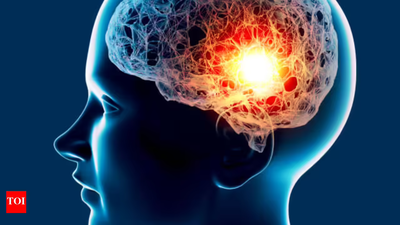ARTICLE AD BOX

Kerala is grappling with a concerning spike in Primary Amoebic Meningoencephalitis (PAM) cases, a rare and deadly brain infection.
NEW DELHI: Kerala health authorities are on high alert after a surge in cases of Primary Amoebic Meningoencephalitis (PAM), a rare but highly fatal brain infection caused by Naegleria fowleri — popularly called the “brain-eating amoeba.
”So far in 2025, the state has reported 69 confirmed cases and 19 deaths, most within the last few months. The infection, previously seen in isolated clusters in Kozhikode, Malappuram and Kannur, is now appearing as sporadic cases across districts, raising public health concerns.What is PAM?PAM is a type of amoebic encephalitis that attacks the central nervous system. The infection occurs when contaminated freshwater enters the nose — usually while swimming, bathing, or diving — allowing the amoeba to travel through the sinuses to the brain.
Once there, it rapidly destroys brain tissue, leading to swelling and death in most cases.Kerala’s health department notes that oral consumption of contaminated water does not cause the disease.Globally, fewer than 500 cases have ever been reported, but Kerala alone has seen over 120 cases in the last two years.

Who is at risk?PAM usually affects healthy children, teens, and young adults during the warmer months. Patients in Kerala this year have ranged from a three-month-old infant to a 91-year-old senior citizen.
The infection is linked to stagnant or poorly maintained freshwater bodies, while well-chlorinated swimming pools are considered safe.Symptoms: Why diagnosis is difficult?The early signs mimic bacterial meningitis, making timely detection difficult.
- Severe headache
- Fever, nausea, vomiting
- Stiff neck
- Confusion and seizures in advanced stages
Doctors warn that by the time PAM is correctly diagnosed, it is often too late to prevent fatal brain swelling.Treatment and survivalTreatment options remain limited. Most patients are admitted in a pre-coma state. Only a handful of survivors worldwide were diagnosed before the infection reached the brain, allowing doctors to begin an aggressive antimicrobial cocktail.Kerala health minister Veena George stressed: “Early detection is key. We are testing every meningoencephalitis case for amoeba, and treatment begins immediately if confirmed.”

Why Kerala is vulnerableExperts cite Kerala’s warm climate, monsoon-driven waterlogging, and heavy reliance on ponds and unchlorinated water sources. Climate change, raising water temperatures and increasing recreational water use, is also expected to fuel cases.Preventive measures: How to stay safeThe Kerala health department and NCDC have issued guidelines:
- Avoid swimming, diving, or bathing in stagnant freshwater ponds or lakes.
- Use nose clips if swimming in untreated water.
- Do not let water enter your nose while showering, washing, or playing with hoses.
- Ensure proper chlorination of swimming pools, wells, and water tanks.
- Use boiled, filtered, or sterile water for nasal irrigation.
- Empty wading pools daily; keep spas and theme parks properly maintained.
The bigger pictureWhile PAM remains extremely rare worldwide, Kerala’s unusual surge in cases has turned it into a serious public health challenge. Health experts underline that community awareness and prevention remain the only real shields against the “brain-eating amoeba.”



.png)
.png)
.png)
















 1 hour ago
4
1 hour ago
4









 English (US) ·
English (US) ·